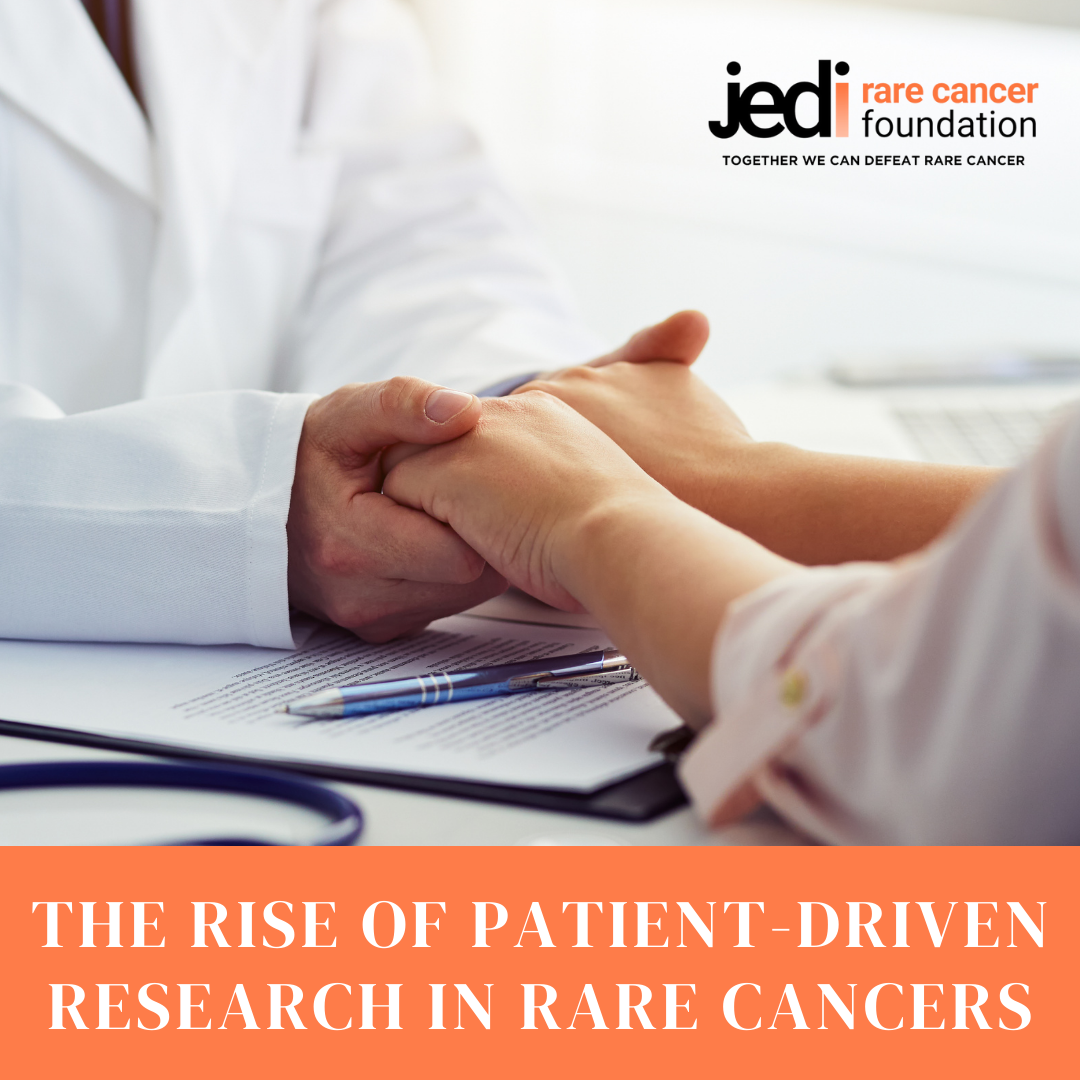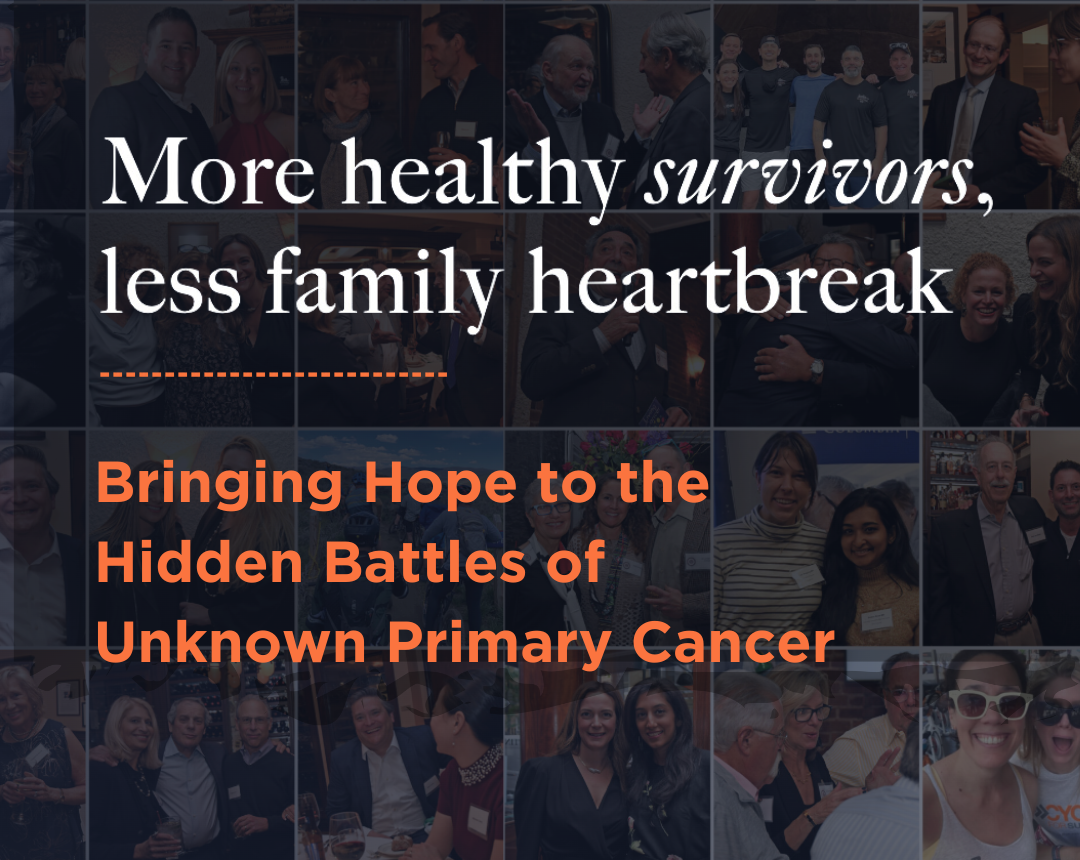

In the landscape of cancer research, rare cancers like Sarcoma, Glioblastoma, and Fibrolamellar Carcinoma have often been overshadowed in favor of more prevalent types. Yet, there’s a shift underway, largely fueled by the rise of patient-led research efforts. Key among these transformative initiatives are patient and family-run registries, including the notable Fibrolamellar Registry. These efforts are not only filling critical gaps in our understanding of rare cancers but are also forging new paths toward effective treatments.
A recent feature by Cancer Today Magazine explains, “Rare cancers, defined by the National Cancer Institute as those affecting fewer than 40,000 people per year in the U.S., are notoriously difficult to diagnose and treat.” Due to their low incidence, these cancers often receive less attention from traditional funding sources, leading to a scarcity of data and research that could inform better patient outcomes. This is where patient-driven research and registries come into play, transforming the field of rare cancer research.
The Fibrolamellar Registry, as highlighted in the article, stands as a testament to the power of patient and family involvement in driving research forward. Initiated and managed by those directly impacted by fibrolamellar carcinoma—a rare form of liver cancer—this registry collects and analyzes data that are crucial for understanding the disease’s progression, treatment responses, and potential genetic markers.
Patient-driven registries provide a centralized platform for collecting detailed patient data, which is often scattered and unavailable in the broader medical research community. This data includes medical histories and treatment outcomes, patient experiences, and quality-of-life measures that are invaluable for a holistic understanding of the disease. They also foster a collaborative environment where patients, families, researchers, and clinicians can work together towards common goals. By breaking down the traditional barriers between patients and research, they ensure that research priorities align with the needs and experiences of those most affected by the disease.
These registries often leverage their unique position to facilitate innovative research collaborations. The data they gather can help identify new research questions, support clinical trials, and even attract funding for studies that might otherwise be overlooked. Essentially, they are not just participants in the research process but catalysts for change. The success of initiatives like the Fibrolamellar Registry serves as a powerful reminder of the potential that lies in patient-driven research, especially for rare cancers. By placing patients and their families at the heart of research, these registries are not only contributing to a deeper understanding of rare cancers but are also paving the way for more effective treatments and, ultimately, better patient outcomes.
As we look to the future, the role of patient-driven research and registries in rare cancers will undoubtedly continue to grow. Their work exemplifies a broader shift towards patient-centered research approaches across the medical field. For the 40,000 patients facing the daunting journey of a rare cancer diagnosis, these initiatives offer not just hope for more effective treatments but also the empowering opportunity to contribute directly to the fight against their disease.
The rise of patient-driven research and registries marks a significant evolution in the battle against rare cancers. By harnessing the power of patient and family experiences, combined with scientific rigor, these initiatives are breaking new ground in understanding and treating some of the most challenging diseases. Their impact extends beyond the scientific community, offering a beacon of hope and empowerment for patients and families navigating the complexities of rare cancer.
To continue breaking barriers and pioneering advancements in rare cancer research, your support is crucial. Consider making a donation to fuel these vital efforts and help transform the future of rare cancer treatment: https://donate.jedicancerfoundation.org/



Your generous donation has the power to save lives.
Together, we will END rare cancer.
Comment, Like, Share & Follow Us on Social Media.
Together, we can take action against rare cancer and help save lives.

The Jed Ian Taxel Foundation for Rare Cancer Research | P.O. Box 683501 Park City, Utah 84068
The Jed Ian Taxel Foundation for Rare Cancer Research, Inc. is a 501 (C)(3) Non-Profit Organization, accepting Tax Deductible donations from individuals, corporations, family-advised funds and foundations. Federal Tax ID 86-2610819
DISCLAIMER: THIS WEBSITE DOES NOT PROVIDE MEDICAL ADVICE The information, including but not limited to, text, graphics, images and other material contained on this website are for informational purposes only. No material on this site is intended to be a substitute for professional medical advice, diagnosis or treatment. Always seek the advice of your physician or other qualified health care provider with any questions you may have regarding a medical condition or treatment and before undertaking a new health care regimen, and never disregard professional medical advice or delay in seeking it because of something you have read on this website.